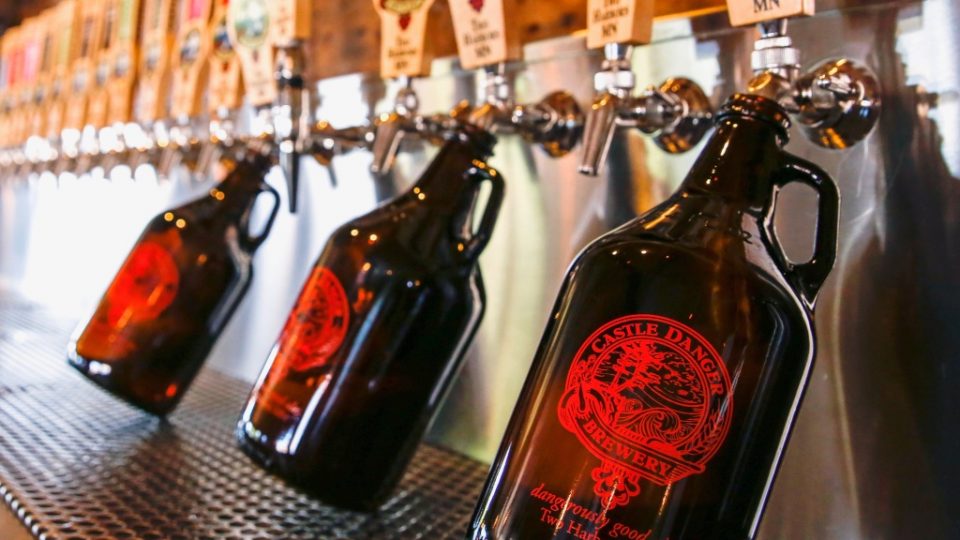Minnesota lawmakers struck a deal Thursday afternoon to allow beer growlers and full-size bottles of liquors to be sold by the brewers and distillers who make them.
Under the bipartisan plan, every brewery currently operating in the state would be allowed to sell beer growlers — 128-ounce jugs of fresh-poured beer — and distilleries would be able to sell standard 750 ml bottles of spirits like gin and vodka on-site, instead of skinny bottles currently required under the state’s liquor laws.
The bill, which would be the first in several years to make widespread changes to the state’s liquor codes, makes a number of other changes, but does not change one of Minnesota’s most idiosyncratic restrictions: Grocery stores will still be prohibited from selling anything stronger than 3.2 percent alcohol beer.
The bipartisan agreement still needs to pass the House and Senate before Monday and be signed by Gov. Tim Walz to become law, but a joint House-Senate committee approved it early Thursday evening, making its prospects for passage bright as the Legislature speeds toward a deadline to wrap up its business.
GROWLER FREED
The agreement was praised by both the Minnesota Craft Brewers Guild and the Minnesota Alliance of Craft Breweries. The groups include some if the state’s largest breweries that are currently prohibited from selling growlers on-site: Summit, Schell’s, Surly, Fulton and Castle Danger. Ever since the growlers were first authorized for microbreweries more than a decade ago, a state cap has restricted the largest producers from selling them.
The plan agreed to by lawmakers raises that cap, giving breweries a long-sought victory, often marketed under the hashtag #FreeTheGrowler. The old production cap of 20,000 barrels a day would be raised to 150,000 barrels a day; Summit, the state’s largest brewery, produced 109,000 barrels in 2020. Under the plan, a brewery could sell up to one to-go growler’s worth of suds to each customer in a day.
DISTILLERS LOOSENED
Makers of distilled spirits also claimed a victory in the agreement. Not only would they be allowed to sell 750 ml bottles, but all distilleries also would be allowed to sell cocktails and operate a “cocktail room” — essentially an on-site bar.
OTHER CHANGES
Among other provisions of the bill:
- Liquor stores will be allowed to sell fruit and glassware. Currently, they can only sell, say, lime juice, but no limes, and only plastic cups, no glasses.
- Resorts would be allowed to sell containers of regular beer, not the 3.2 beer required of grocery stores.
- Municipalities would be allowed to extend hours for bars to serve during live FIFA men’s and women’s World Cup soccer events, which often air during odd local hours.
- Local wineries that make hard cider from real apples would be allowed to act as their own distributors for up to 2,500 barrels a day — but only if no wholesaler if available.
- Several rules would be loosened to allow sales in some local civic centers, longer sales at county fairs, and beer sales at local “town ball” baseball league games and venues.


